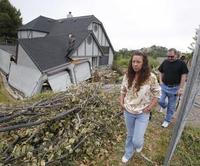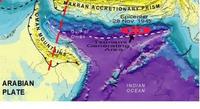-
House will see floor battle today over Keystone XL pipeline
Republican and Democrats lawmakers are set to engage in a fierce battle on the House floor over the fate of the Keystone XL project. Representative Lee Terry’s (R-Nebraska) proposed legislation to allow TransCanada to start construction of the Keystone XL pipeline, which runs from Hardisty, Canada through seven states to Houston, Texas. The bill will come to the House floor today.
-
-
Senator Hatch champions tech industry’s priorities in immigration reform

As the Senate Judiciary Committee continues to consider the bipartisan immigration reform bill, both supporters and opponents of the bill agree that one senator has emerged as a key voice on the issue: the 79-year old Orrin Hatch (R-Utah). Hatch has emerged as a champion of the U.S. technology industry, and while he supports the broad goal of immigration reform, he insists on shaping the legislation so it addresses the priorities and preferences of the tech industry, priorities and preferences which he sees as essential not only for the health of the industry, but for the health of the U.S. economy more generally.
-
-
Algae could become an important source of fuel in U.S.

A new analysis shows that the U.S. land and water resources could likely support the growth of enough algae to produce up to twenty-five billion gallons of algae-based fuel a year in the United States, one-twelfth of the country’s yearly needs.
-
-
Compressing air for renewable energy storage

Enough Northwest wind energy to power about 85,000 homes each month could be stored in porous rocks deep underground for later use, according to a new, comprehensive study. Researchers identified two unique methods for this energy storage approach and two eastern Washington locations to put them into practice.
-
-
DHS advises Michigan State U on football stadium safety
By all accounts, Michigan State University’s basketball team has been doing better over the years than the school’s football team (just think Magic Johnson). The university wants to raise the profile of its football team, and is building a new, $24 million stadium — but DHS advised the university that the stadium’s north side stands are too close to the gas tanks and pumps which serve the school’s motor pool. The university is now moving the gas tanks to a new location.
-
-
Asteroid 1998 QE2, nine times larger than cruise ship, to glide past earth

Two weeks from now, on 31May 2013, asteroid 1998 QE2 will sail serenely past Earth, getting no closer than about 3.6 million miles, or about fifteen times the distance between Earth and the moon. While QE2 is not of much interest to those astronomers and scientists on the lookout for hazardous asteroids, other asteroids are. NASA recently announced developing a first-ever mission to identify, capture, and relocate an asteroid for human exploration.
-
-
California community sinking into the ground, and engineers are baffled

Several homeowners in the community of Lake County, California are faced with a problem: their houses are sinking into the ground and they do not know why. The situation has been deteriorating steadily, and now mail delivery has been cancelled in the area, and city and county crews have been forced to change the subdivision’s sewage line to an overland pipe as a result of manhole collapses.
-
-
A “cauldron of events” has brought the nuclear industry to a halt
Until two years ago, people talked of a nuclear energy renaissance. Now the talk is about nuclear malaise. The Fukushima scare, the emergence of alternative energy sources as a result of fracking, and the lack of action on climate change – which means that limits on fossil fuels are not coming any time soon – have, in the words of one experts, brought the nuclear industry to a halt.
-
-
Hazard of Western Indian Ocean earthquake, tsunami greater than thought

Earthquakes similar in magnitude to the 2004 Sumatra earthquake could occur in an area beneath the Arabian Sea at the Makran subduction zone, according to recent research. The study suggests that the risk from undersea earthquakes and associated tsunami in this area of the Western Indian Ocean — which could threaten the coastlines of Pakistan, Iran, Oman, India, and potentially further afield — has been previously underestimated.
-
-
Quickly identifying chemical, biological warfare agents
For more than fifty years, researchers have been studying exactly how aspirin affects the human body. Despite thousands of publications on the topic, our understanding is still incomplete. Meanwhile, novel chemical and biological weapons have historically been mass produced within a year of discovery. Using current methods and technologies, researchers would require decades of study to gain a robust understanding of how new threat agents exert effects on human biological systems. DARPA wants to close this capability gap, which leaves U.S. forces vulnerable.
-
-
Terahertz technology helps to see more with less

Terahertz technology is an emerging field which promises to improve a host of useful applications, ranging from passenger scanning at airports to huge digital data transfers. Terahertz radiation sits between the frequency bands of microwaves and infrared radiation, and it can easily penetrate many materials, including biological tissue. The energy carried by terahertz radiation is low enough to pose no risk to the subject or object under investigation.
-
-
Assessing asteroid risk to Earth
Of the more than 600 000 known asteroids in our Solar System, almost 10 000 are classified as near-Earth objects, or NEOs, because their orbits bring them relatively close to Earth’s path. A dramatic proof that any of these can strike Earth came on 15 February, when an unknown object thought to be 17-20 meter in diameter arrived at 66 000 km/h and exploded high above Chelyabinsk, Russia, with 20-30 times the energy of the Hiroshima atomic bomb.
-
-
Silica particles purify water by acting as oil magnets
Engineers develop an innovative method designed to purify water through the rapid removal of oily pollutants. The technology involves the deployment of surface engineered silica particles, which act as oil magnets in water, adsorbing oil, yet repelling water.
-
-
New grass hybrid helps reduce runoffs, flooding

Scientists use hybridized forage grass to combine fast root growth and efficient soil water retention. Field experiments show Festulolium cultivar reduces water runoff by up to 51 percent against nationally-recommended cultivar. The hybrid captures more water and reduces runoff and likelihood of flood generation.
-
-
Lower waves' impact on coastal communities uncertain
Coastal impacts of climate change studies have predominantly focused on the influence of sea-level rise and, until now, not focused on how changing wave conditions will impact the coastal zone in a changing climate. Scientists note, though, that waves are dominant drivers of coastal change in these sandy environments, and variability and change in the characteristics of surface ocean waves can far exceed the influences of sea-level rise in such environments. Since warmer oceans will see lower waves, the effect of warming on coastal communities is uncertain.
-
More headlines
The long view
Encryption Breakthrough Lays Groundwork for Privacy-Preserving AI Models
In an era where data privacy concerns loom large, a new approach in artificial intelligence (AI) could reshape how sensitive information is processed. New AI framework enables secure neural network computation without sacrificing accuracy.
AI-Controlled Fighter Jets May Be Closer Than We Think — and Would Change the Face of Warfare
Could we be on the verge of an era where fighter jets take flight without pilots – and are controlled by artificial intelligence (AI)? US R Adm Michael Donnelly recently said that an upcoming combat jet could be the navy’s last one with a pilot in the cockpit.
The Potential Impact of Seabed Mining on Critical Mineral Supply Chains and Global Geopolitics
The potential emergence of a seabed mining industry has important ramifications for the diversification of critical mineral supply chains, revenues for developing nations with substantial terrestrial mining sectors, and global geopolitics.
AI and the Future of the U.S. Electric Grid
Despite its age, the U.S. electric grid remains one of the great workhorses of modern life. Whether it can maintain that performance over the next few years may determine how well the U.S. competes in an AI-driven world.
Using Liquid Air for Grid-Scale Energy Storage
New research finds liquid air energy storage could be the lowest-cost option for ensuring a continuous power supply on a future grid dominated by carbon-free but intermittent sources of electricity.
Enhanced Geothermal Systems: A Promising Source of Round-the-Clock Energy
With its capacity to provide 24/7 power, many are warming up to the prospect of geothermal energy. Scientists are currently working to advance human-made reservoirs in Earth’s deep subsurface to stimulate the activity that exists within natural geothermal systems.
